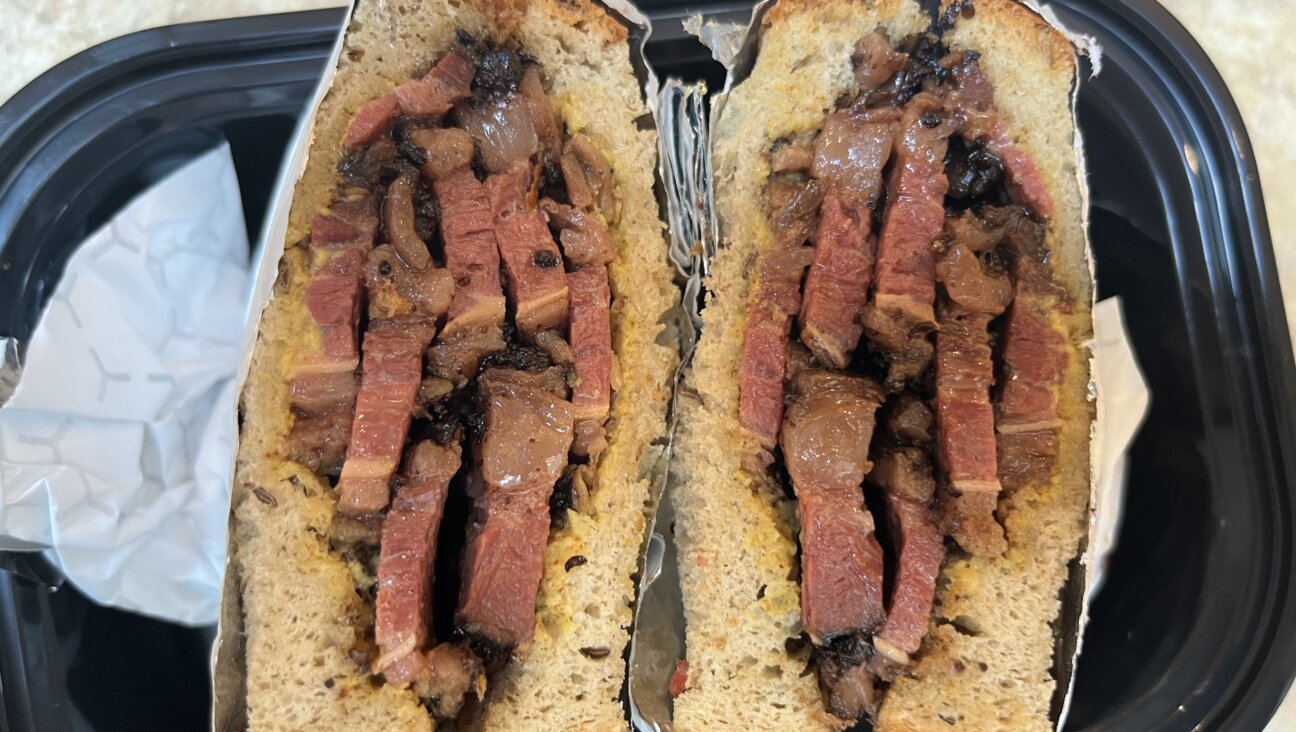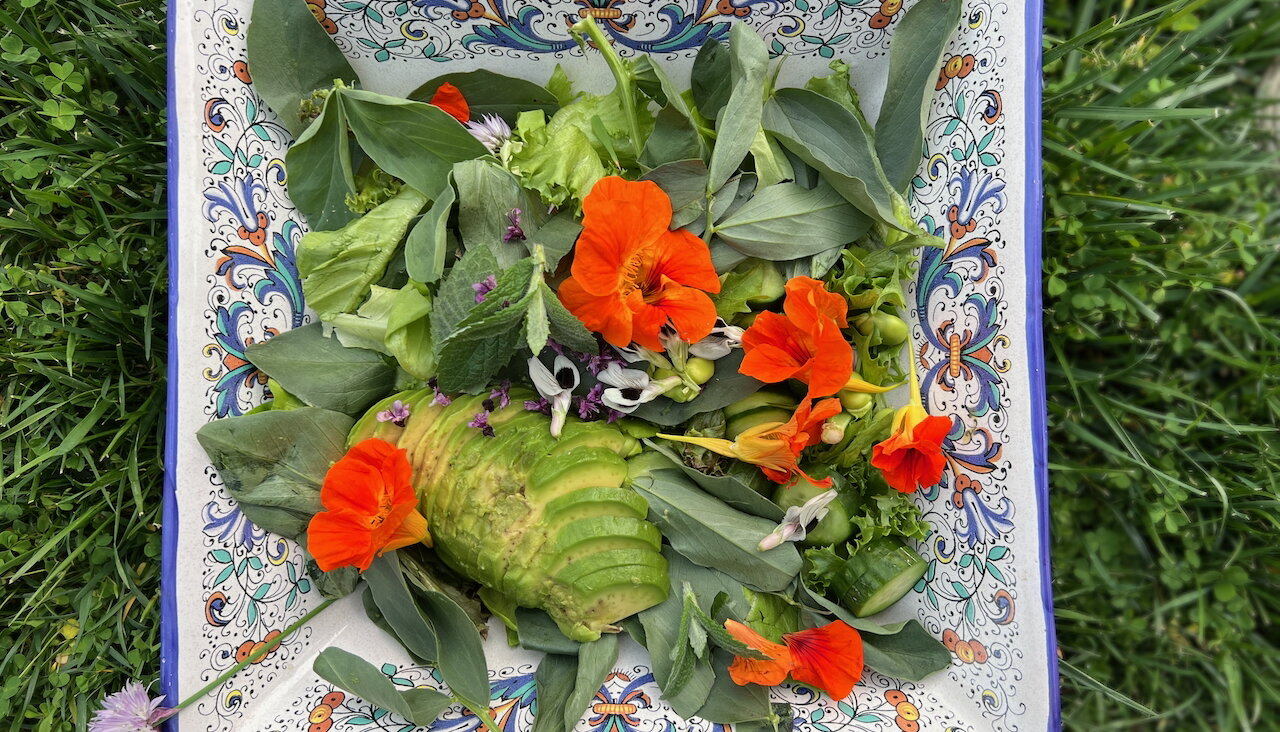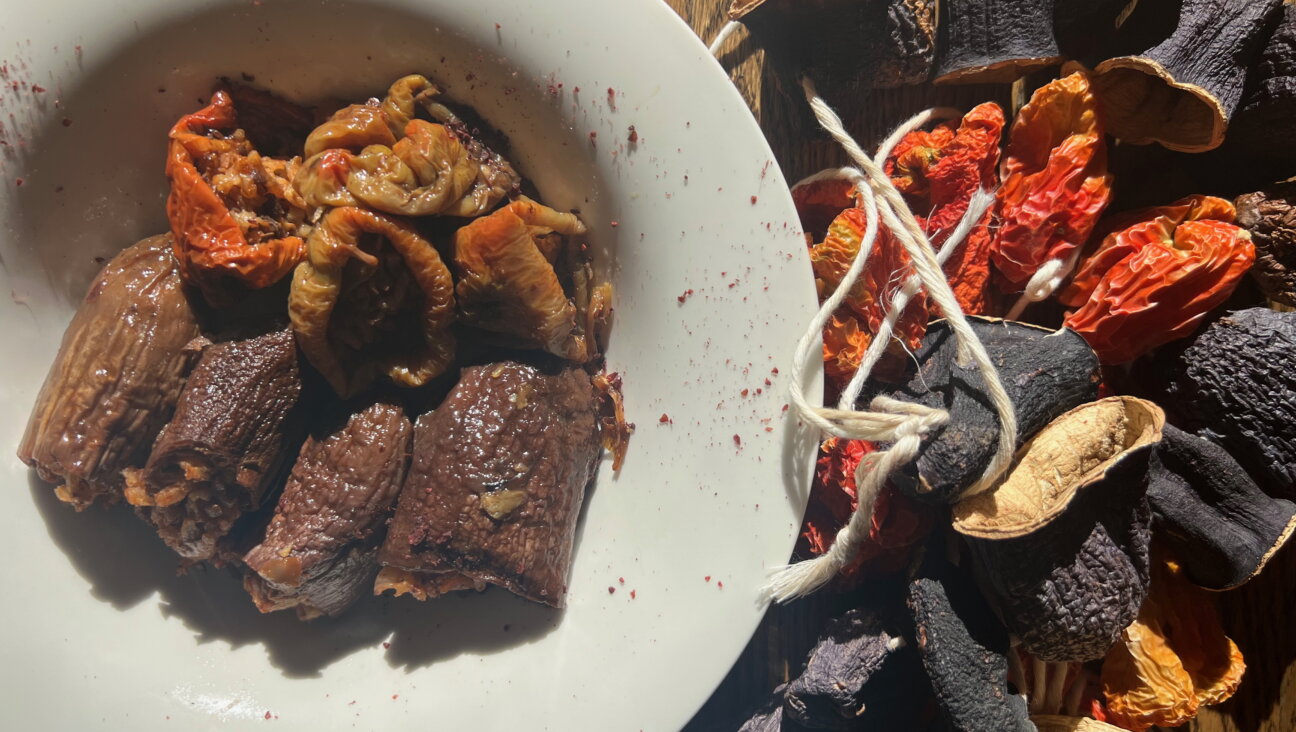Ukrainian rugelach are the cookie you should be making now

Rogaliki By @foodaism
The historian Timothy Snyder called them the “bloodlands:” the region including Russia and Ukraine that gave us the massive killing fields of Stalin and Hitler, and that now gives us Russia’s vicious war.
But that same span of earth has also yielded, in quieter times, a bounty of wheat, milk, fruit and vegetables that all its inhabitants have cooked and shared.
Ukrainians and Russians have so many foods in common: Borscht, dumplings, aspics, and rugelach. We’d like to believe that common food makes common cause. Maybe among individuals that works. Among nations, not so much.
Jews and even most Americans may consider these dishes to be Eastern European Jewish fare because immigrant Jews popularized them here. But they are rooted in the land and peoples of those countries. Russian soldiers will go home and eat foods barely different from those enjoyed by the people they are besieging.
The differences in their leadership is huge, in their foods, minor.
“Russian and Ukrainian foods do overlap,” Darra Goldstein, author of numerous cookbooks on the region’s foods, wrote me by email, “but there are distinctions. Ukraine’s climate is much more temperate, so they historically had many more vegetables, and their bread is traditionally wheat-based, rather than rye. Their national soup is borscht — over a hundred different regional variations — whereas for Russians it’s shchi (cabbage soup). Ukrainians tend to eat porridge made of corn or millet, while Russians would have buckwheat (kasha). Ukraine’s famous dumplings, varenyky, are filled with cherries or farmer’s cheese or potatoes; Russians eat Siberian pelmeni filled with a mixture of beef and pork.”
I reached out to Goldstein because she has been posting poignant photos on her Instagram of the Ukraine she loves — and writing, in the captions, of the Russian people whom she has gotten to know so well. For someone who has spent so much time among the people and foods of each country, the war tears at her.
“I’m beyond distraught at what’s happening,” she wrote, “and the viciousness of Putin’s actions is unthinkable.”
Goldstein’s latest book, “Beyond the North Wind,” which I have cooked from many times, attests to her love of the Russian countryside and people. As she reminds her followers, thousands of Russians have protested the war and have been arrested.
“Putin isn’t Russia,” she wrote.
Russians, Ukrainians and the Jews among them all make a rolled, filled cookie which in America go by the Yiddish name, rugelach.
I found many versions on Ukrainian cooking sites and in Ukrainian cookbooks — all called rogaliki. The version below is from Momsdish, a blog run by Natalya Drozhzhin, a Ukrainian-American who lives in Seattle.
Drozhzhin, who is raising money for Ukraine through church relief efforts, said the recipe for what she calls rogaliki came from her mother, who would make them all year round.
Goldstein wrote to me that the word “rogaliki” itself is Russian. In Ukrainian the cookies are called, rohalyky. Both words mean “little horns.”
“You can see how the Yiddish word ‘rugelach’ was derived from that,” she wrote. “I don’t think either country can claim them.”
The recipe is delicious. It uses sour cream in the dough, rather than the cream cheese found in many rugelach recipes. And the fact that even Ukrainians use the Russian name just points to how intertwined these cultures are, how much they share, and how senseless and cruel this conflict is.
Rogaliki, rohalyky, rugelach
Recipe posted with permission from Momsdish
Dough
2 1/2 cup flour
1 tbsp. dry yeast
1 cup unsalted butter at room temperature
3 tbsp. sugar
2 egg yolks, beaten
3/4 cup sour cream
Fillings
apricot jam
1/4 cup sugar mixed with 1 tbsp. cinnamon and 1/4 cup ground walnuts
1/2 cup grated chocolate
In a large bowl, combine flour and yeast. Add butter, and using your hands mix and rub the butter in until the mixture resembles coarse sand. Add sugar, egg yolks and sour cream and blend well with your hands until the dough comes together in a ball. You’ll have to press it into shape. Do not overmix.
Wrap in plastic wrap and refrigerate 30 minutes or more. Remove dough and let soften a bit.
Preheat oven to 350 degrees.
Divide dough into four equal pieces and flatten each piece into a circle shape with your hands. Place between two pieces of parchment paper. On a large flat surface, roll dough out between the parchment paper sheets to create a circle, about 1/8-inch thick. If it’s perfect, good for you. If not, that’s fine.
Using a knife or pizza cutter, cut like a pizza into 8-12 pie-shaped wedges. On the wide end, add a scant teaspoon of apricot jam. Roll up toward the point and place on a baking sheet lined with parchment.
To make chocolate or cinnamon-nut, sprinkle those ingredients evenly over the rolled dough then proceed to roll up as above.
Beat an egg and brush over the tops. Bake until beginning to brown, about 20-30 minutes. Let cool a bit, and sprinkle, if you wish, with powdered sugar.
The Forward is free to read, but it isn’t free to produce

I hope you appreciated this article. Before you go, I’d like to ask you to please support the Forward.
Now more than ever, American Jews need independent news they can trust, with reporting driven by truth, not ideology. We serve you, not any ideological agenda.
At a time when other newsrooms are closing or cutting back, the Forward has removed its paywall and invested additional resources to report on the ground from Israel and around the U.S. on the impact of the war, rising antisemitism and polarized discourse.
This is a great time to support independent Jewish journalism you rely on. Make a gift today!
— Rachel Fishman Feddersen, Publisher and CEO
Support our mission to tell the Jewish story fully and fairly.
Most Popular
- 1

Fast Forward Ye debuts ‘Heil Hitler’ music video that includes a sample of a Hitler speech
- 2

Opinion It looks like Israel totally underestimated Trump
- 3

Culture Is Pope Leo Jewish? Ask his distant cousins — like me
- 4

Fast Forward Student suspended for ‘F— the Jews’ video defends himself on antisemitic podcast
In Case You Missed It
-

News In Edan Alexander’s hometown in New Jersey, months of fear and anguish give way to joy and relief
-

Fast Forward What’s next for suspended student who posted ‘F— the Jews’ video? An alt-right media tour
-

Opinion Despite Netanyahu, Edan Alexander is finally free
-

Opinion A judge just released another pro-Palestinian activist. Here’s why that’s good for the Jews
-
Shop the Forward Store
100% of profits support our journalism
Republish This Story
Please read before republishing
We’re happy to make this story available to republish for free, unless it originated with JTA, Haaretz or another publication (as indicated on the article) and as long as you follow our guidelines.
You must comply with the following:
- Credit the Forward
- Retain our pixel
- Preserve our canonical link in Google search
- Add a noindex tag in Google search
See our full guidelines for more information, and this guide for detail about canonical URLs.
To republish, copy the HTML by clicking on the yellow button to the right; it includes our tracking pixel, all paragraph styles and hyperlinks, the author byline and credit to the Forward. It does not include images; to avoid copyright violations, you must add them manually, following our guidelines. Please email us at [email protected], subject line “republish,” with any questions or to let us know what stories you’re picking up.
















